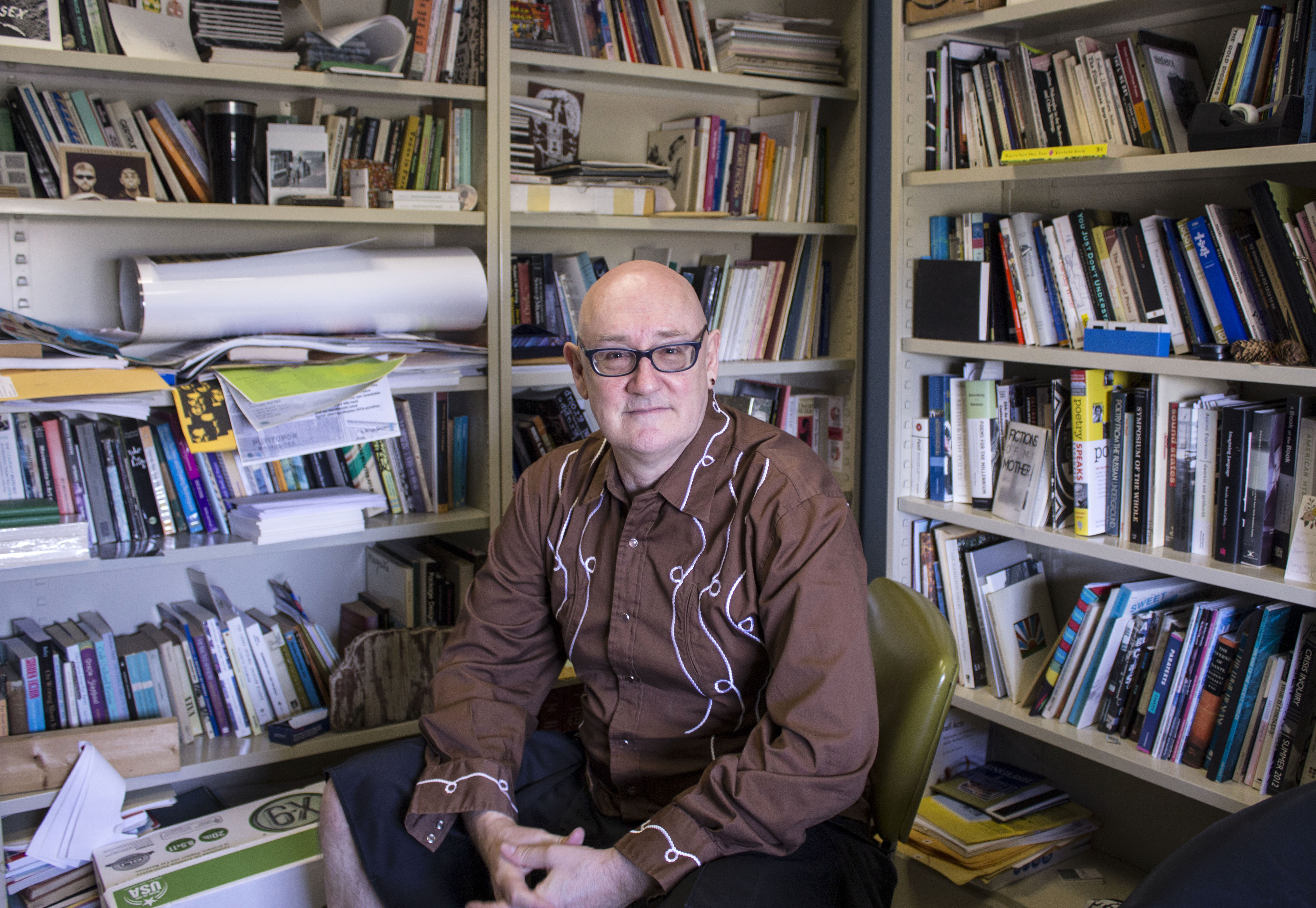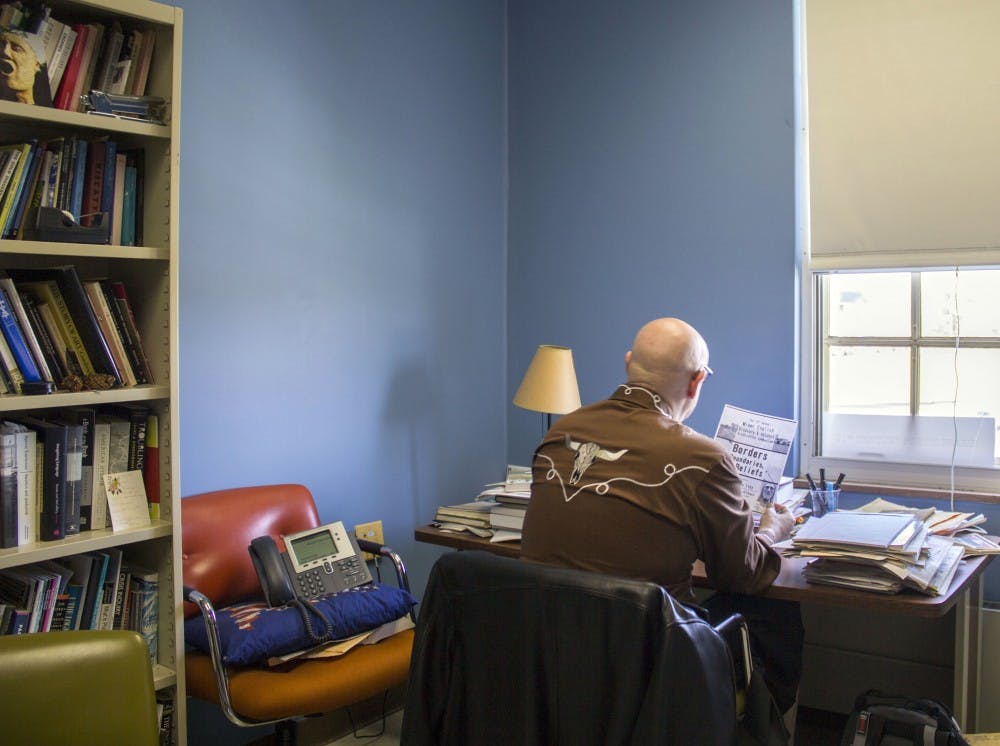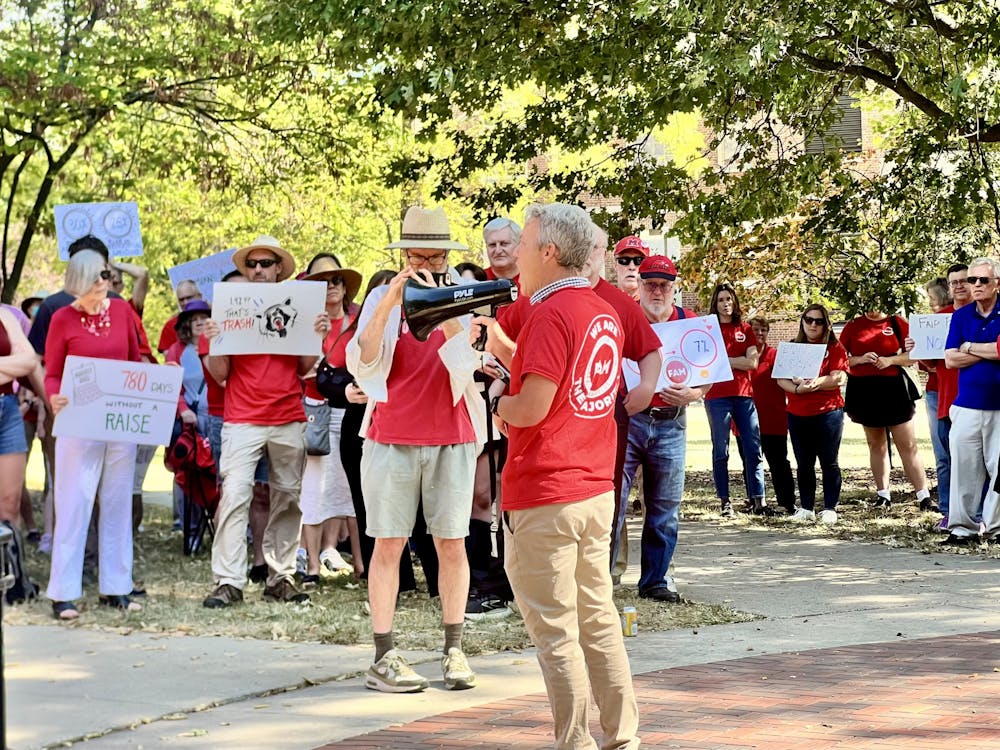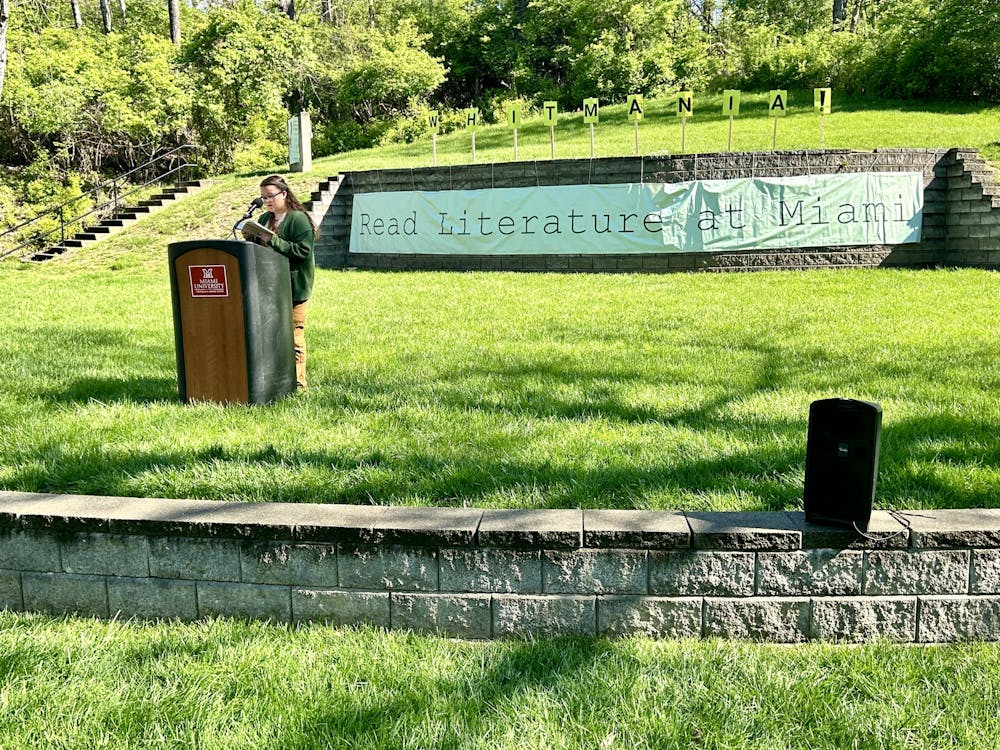Dr. cris cheek (intentionally uncapitalized) is not a to-do-list type of person. He didn't plan on being here, in this office of the neo-Georgian red-brick housing Miami University's English Department, nor teaching poetry at a university 3,944 miles away from his birthplace--though he suspects London will always be hardwired into his system. At age 61, as he bumps elbows with overstuffed bookshelves and open texts sprawled on the desk before him, he discloses that he joined academia late--going to college at 39. Years ago, when the chair of the Miami English Department offered a visiting associate post, cris cheek, at that time teaching in England, said yes.
He didn't plan on the resident poet at the time taking permanent leave, nor the fact that he would then become the internal candidate for the vacancy.
He didn't plan on the funny, roundabout way in which this quirky band of renegades hunted him down and brought him into the stateside life he now calls 'normal'. That his son would love climbing the Rockies and celebrating New Year's Eve in Chicago. That, 12 years later, he'd still be searching for the truly multicultural creative context that he knows America can offer.
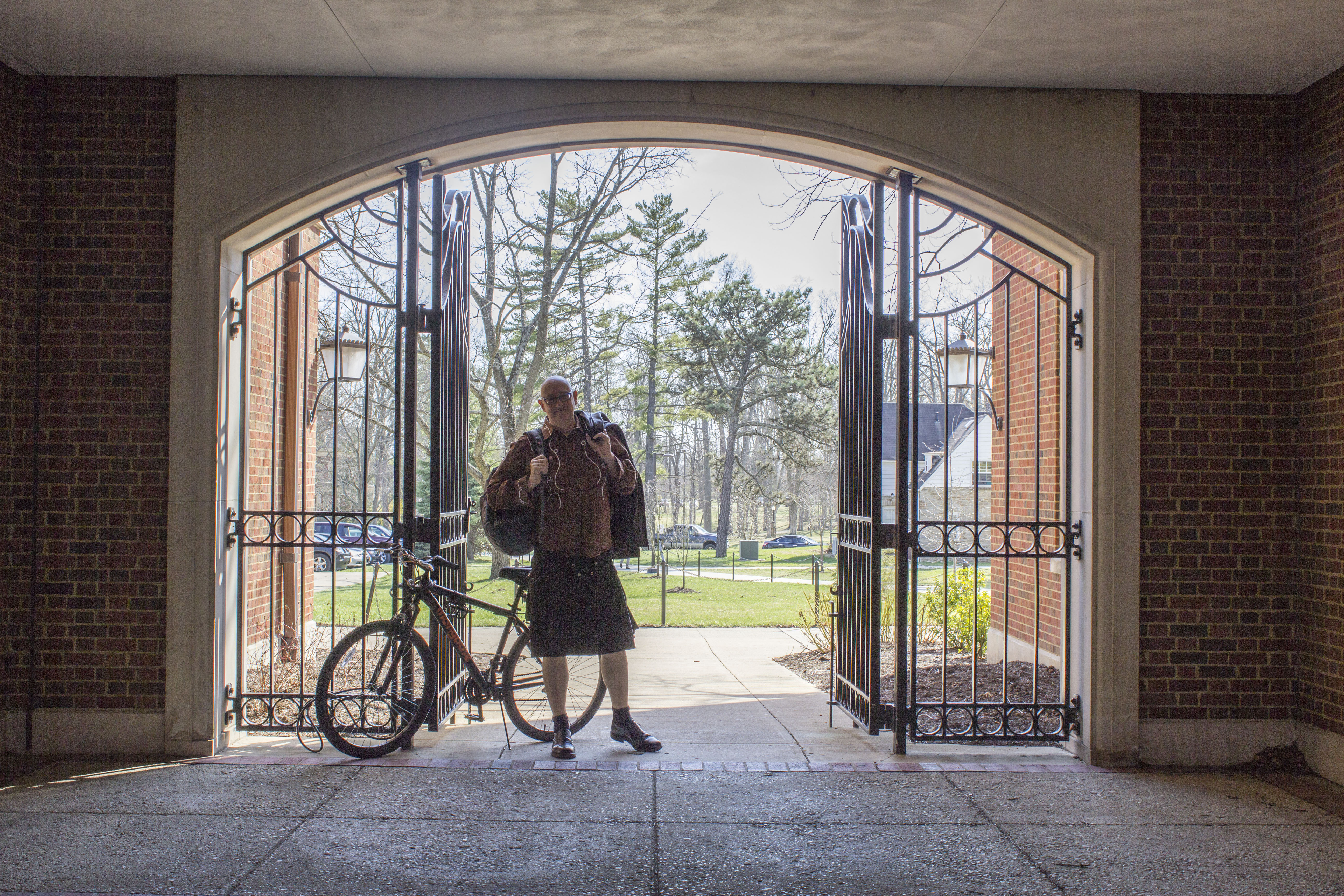
Photo by Victoria Ferguson
He didn't plan on poetic pursuit. In a post-war, welfare state England, he entertained a charmed, rock-and-roll teen-hood: watching Jimmy Hendrix live at age 12, growing up in the Swinging Sixties alongside bands like the Beatles and the Rolling Stones. Suddenly, Allen Ginsberg and the Beats were stepping into the scene, Mick Jagger read Shelley in eulogy of the Rolling Stones' Brian Jones, poets were pumping out lyrics for big-name bands.
Nobody planned on poetry being 'pop', yet cris cheek took it all in stride--oh, well it's kinda cool to be a poet right now. The effete, ivory tower that housed poetry had crumbled with the rupture between high and low culture, and it was up to a new generation to reinvent the pieces. With its sudden availability, poetry transcended the flat page into a physical, three-dimensional act: pursuing curiosity through every new world that one encountered. He didn't think he was very good at it; yet, something about it drew him into the miasma of lyricism and confirmed for him that he always wanted to be where language was put under the most intense pressure.
He didn't plan for the journey this art form would take him on, how he would emulsify poetry with dance, with film, with music, with performance art, with painting, so on and so forth.
He didn't plan on winning a Sony Gold Specialist Award, or releasing three albums. On speaking the oral soundtrack to a feminist critique of ballet, working in reminiscence with the elderly, or giving voice to victims of domestic violence. And he certainly didn't plan on the fact that his work would take him across oceans, settling him in far different Oxford than the one he'd known all his life.
***
Now, a vibrant portrait emerges from the dark walls and cozy book spines of 320 Bachelor Hall. Clear, watery autumn light softens Professor cheek's imposing height and sharp profile while it lingers in pools over the in medias res conglomeration on his desk. As he tips his chair back, his feet plant themselves in a stance at once relaxed and paradoxically eager, inviting language to move through him like a wind among reeds. He folds his hands over his printed shirt and black kilt, gazing out past the window to where his life unfurls before him in swirls of the chaotic: an organically-mused dance, choreography that he doesn't quite control. No, he didn't plan any of it at all, really. He contemplates his lack of premeditation and chuckles, "I don't have to think, my gosh, I'm a poet!" Recalling Louis Pasteur's famous saying that chance favors the prepared mind, one cannot help but wonder with the poet if there's some odd little unexplainable thing at work in his life. The future, after all, is not a to-do-list type of person; it is the delight of infinite possibility.
Enjoy what you're reading?
Signup for our newsletter
